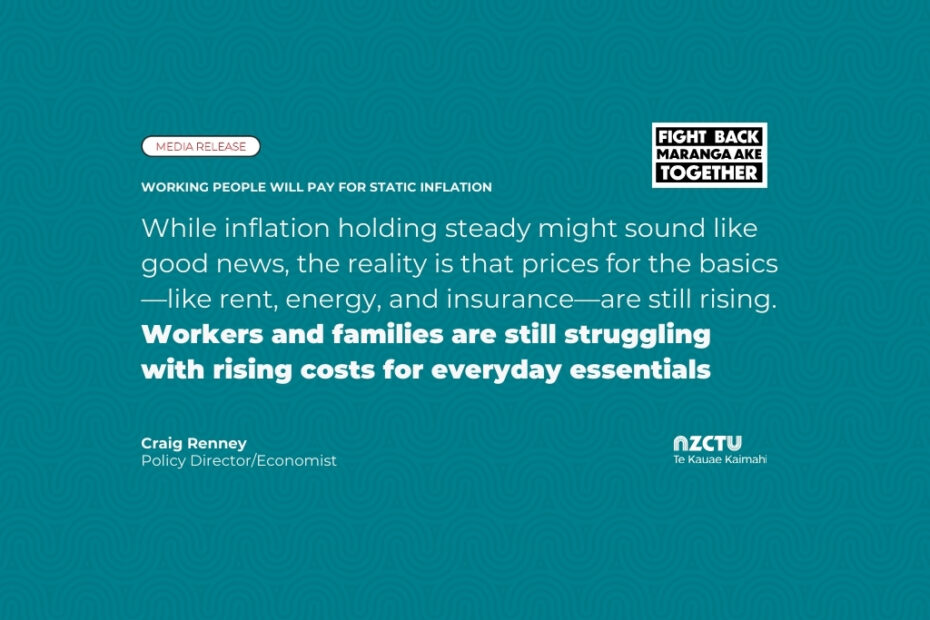Data released by Statistics New Zealand today showed that inflation remains unchanged at 2.2%, defying expectations of further declines, said NZCTU Te Kauae Kaimahi Economist Craig Renney.
“While inflation holding steady might sound like good news, the reality is that prices for the basics—like rent, energy, and insurance—are still rising. The removal of the Auckland Regional Fuel Tax helped ease petrol prices, but without that reduction, inflation could have gone even higher. Workers and families are still struggling with rising costs for everyday essentials,” said Renney.
“The recent drops in inflation have been helped by falls in the price of vehicle fuels – with the average price of 91 falling from $2.81 to $2.55. If we remove petrol from the CPI the overall inflation rose by 2.7%.
“Tradable inflation overall also turned, falling by less than last quarter. Tradeable inflation tends to lead the overall direction of inflation in the future”.
“Many working people aren’t feeling the benefits of lower inflation. Rental inflation was nearly twice general inflation at 4.2%, showing that landlord tax breaks aren’t leading to lower rental prices.
“While stable overall inflation is welcome, the prices for things that people can’t avoid are rising more quickly. Insurance prices rose by 11.2% annually. Local authority rates rose 12%. Household energy costs are rising by 5%. These are all eating into already tight household budgets.
“Last month the government agreed to increase the minimum wage by 1.5% in April. Inflation is currently at 2.2% and seems to have reached its floor. For workers on the minimum wage this looks increasingly like another year in which they will take real terms pay cuts. The Government needs to respond to this data by lifting the minimum wage in real terms,” said Renney.
